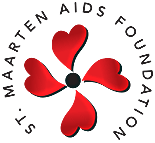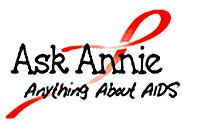knowledge is power get informed
If you’re pregnant or considering having a baby, you need to ask some important questions about HIV and AIDS.
I’m pregnant. Should I get a test for HIV?
Yes. It's important for women who are pregnant or who are considering having a baby to get a test for HIV (the virus that causes AIDS). The sooner you know whether or not you have HIV, the sooner you can start taking care of yourself and start getting the information you need to make the right decisions about you and your baby. HIV test results are confidential.
On St. Maarten, it is advised to take an HIV test in the first trimester (at the first prenatal visit) and again at the beginning of the third trimester.
If I test positive for HIV, can my baby get HIV from me?
Yes. Your baby can become infected in the womb, during delivery, or through breastfeeding. About 30% of babies born to mothers with HIV have the virus, which means that out of every three babies born to mothers with HIV, one will be infected.
However, by taking special medicines during pregnancy, during labor, and for the baby the first 6 weeks after birth, this 30% (without medication) can be reduced down to 2% (with medication). Sometimes it will be advisable to do a C-Section to help reduce the chance of HIV transmission.
Nowadays there are very efficient medicines available to reduce the chance that your baby will become infected with HIV. Usually you start taking these medicines after 12 weeks of pregnancy, but there are several options to choose from. Your doctor can explain what these options are. These medicines have proven to be safe for the baby.
Will my baby be tested for HIV?
Yes. Your baby will be tested with a special blood test that literally looks for and counts the virus. Every baby from a HIV infected mother will have antibodies against HIV in its blood. These antibodies come from the mother (babies get all kinds of antibodies from the mother to protect them during the first months of life).
A normal HIV antibody test would therefore always show up positive, but this would not necessarily mean the baby also has the virus. By counting the virus in the baby’s blood, you get a better idea if the baby is infected or not.
These tests will be repeated a few times. At 18 months, the final test will be done, and if all tests have come back negative, that means your baby in not infected. It is important to do this follow-up because if your baby would also have HIV infection it would be advisable to start treatment, which can help keep her healthy.
Can I do anything to lower the chances that my baby will be born with HIV?
Yes. As mentioned, there are different medicines available to help reduce the chance of HIV transmission to your baby.
Even if you did not have a chance to take medicines during your pregnancy, it is still important to take medication at the time of delivery, and for the baby to also get medication after birth. No matter at what stage in your pregnancy, it makes sense to check for HIV and if necessary, take the best precautions to reduce transmission of HIV to your baby. Therefore, the earlier you test for HIV the better it is to protect the health of your baby.
Would I take medicines during the entire pregnancy?
No. You would usually take it from your fourth month through delivery. Some women need medicines also in the first few months, but this can be explained by your doctor. Bottom line is that no matter at which stage you are in your pregnancy, it is always important to do a HIV test and determine the need for preventative medicines.
Even if you did not take medicines during your pregnancy, but only during labor/delivery, it can help reduce the chances of your baby becoming infected with HIV. The baby will also receive medicines after birth.
Could taking medicines during pregnancy harm me?
Some medicines can cause an upset stomach and anemia (low blood), but these symptoms are also experienced by some pregnant women who do not take medicines. Medicines that are dangerous for your baby will not be prescribed during your pregnancy.
The medicines that are presently prescribed for prevention of HIV transmission to babies are found to be rather harmless, and most women have no problem at all taking them. If side effects do occur, there is the possibility to change to other medicines.
Sometimes it is advisable to take the same medicines to improve your own health. This depends on your own immune status, or how much the virus has affected your immune system.
Could these medicines harm my baby?
Some babies whose mothers take medicines during pregnancy are born with anemia (low blood) but anemia can be easily treated and goes away when treatment ends.
You should discuss the latest information on the benefits and possible risk of preventive medicines with your doctor. Pregnant women who have HIV are always advised to consider taking preventive medicines because the benefits in preventing their babies from getting HIV are greater than the possible risks from these medicines.
What if I’m already taking antiretroviral medicines (anti- HIV medicines)?
If you have been taking antiretroviral medicines for a while and become pregnant, you can decide to continue to take them while you’re pregnant. Also you may want to stop taking them during the first three months of your pregnancy or change to another combination of medicines since it may increase your child’s risk of birth defects. However, stopping may increase the amount of virus in your body. It’s important to talk to your doctor about which decision is best for you before you start or stop taking your medicines.
I have not taken medicines while I’m pregnant - should I take it during labor?
Yes. There are many studies that indicate the advantages of taking medicines even if you only so that during labor/delivery. You would take at least one tablet of the medicine at the beginning of labor, and the baby would receive at least one dosage of a syrup after birth. But there are other treatments available and your doctor will advise you accordingly.
This can reduce the chance of passing HIV to your baby a great deal, and is in fact used in many countries where they cannot afford the full course of medicines. It has been proven to be very effective, with hardly any side effects.
The full course of medicines however seems to be more effective if you compare the two systems of treatment. Even if you reach the hospital at the last minute, and have no time to take any medicine yourself, it is still advisable to give medicines to the baby if you know you are HIV infected. So no matter at what stage you start taking the medicines it always makes sense to do so if you have HIV infection.
If for whatever reason you have not taken an HIV test during pregnancy, the doctor or nurse could still do a rapid HIV test at the time of delivery. But again, it is much better to have had the test as early as possible in your pregnancy to protect the health of your baby.
If I take medicines now for my baby, will it work as well if I have to take it later for myself?
Yes it will.
Many doctors recommend taking a ‘cocktail’ or combination of medicines, similar to the ones you would take for your own health. This has a minute risk of increased side-effects which however are almost always mild. But it has the advantage that your chances of developing resistance to the medicines are significantly reduced as long as you take them exactly as prescribed.
It is extremely important for the effectiveness of the medicines that you take them exactly as prescribed. If you skip or forget certain pills/dosages, this will not only reduce the effectiveness of the medicines, but also put you at high risk of developing resistance to the medicines, which would make them worthless.
Because of certain cross-resistances, it would also mean that several other medicines that could have benefitted you will not work anymore. Adherence to the treatment whether you take it as a prevention for your baby or take it for your own health, is extremely important.
Talk to your doctor or other health care providers who can help you get the information you need to make this decision. The decision is yours to make. Your doctor must provide you with the same health care whether or not you choose to take medicines. No matter what you decide, you and your baby will need special medical care.
Remember, early and regular prenatal care visits, a healthy diet, staying away from cigarettes, alcohol, and drugs are important to keep you and your baby as healthy as possible.



